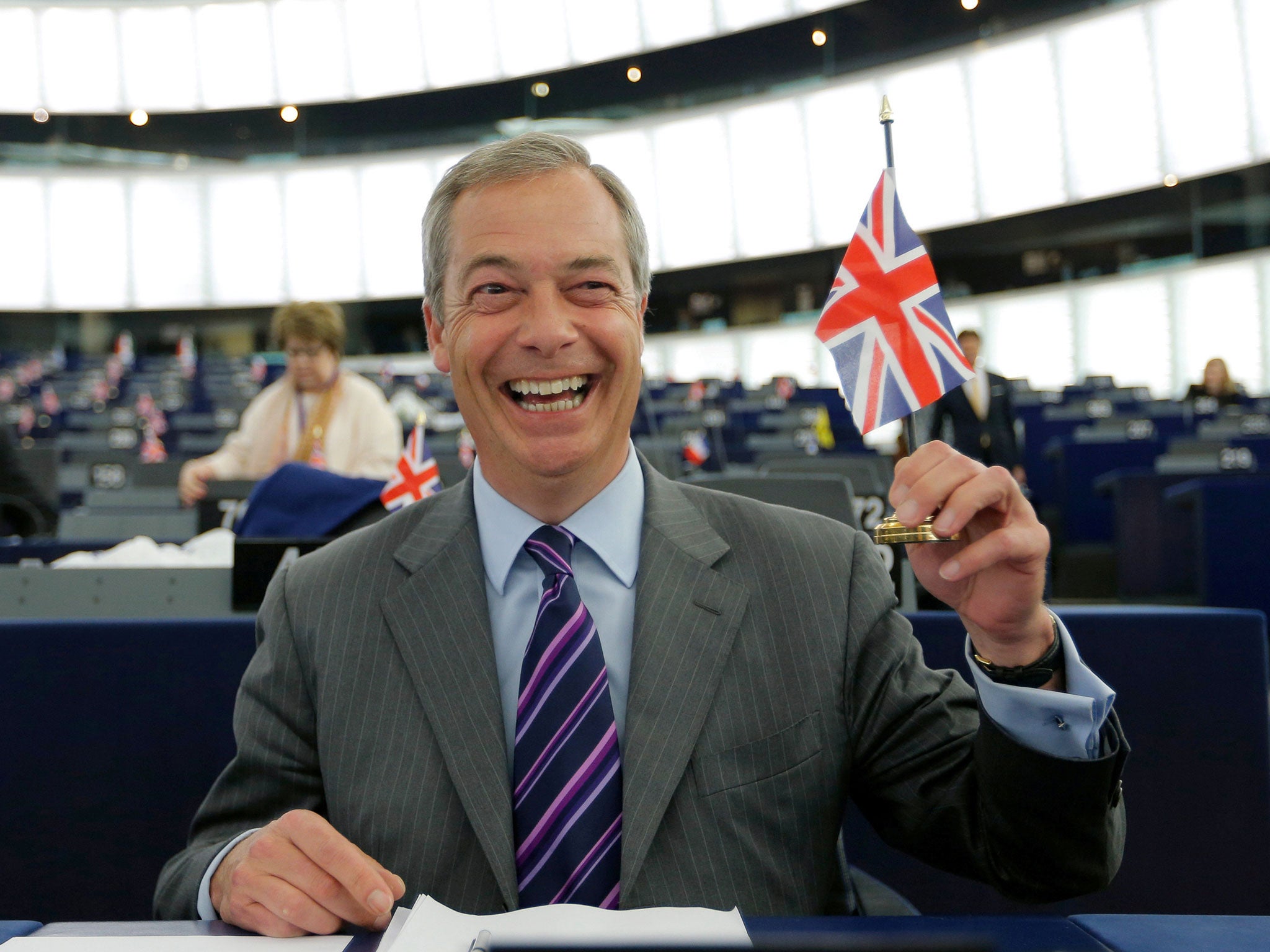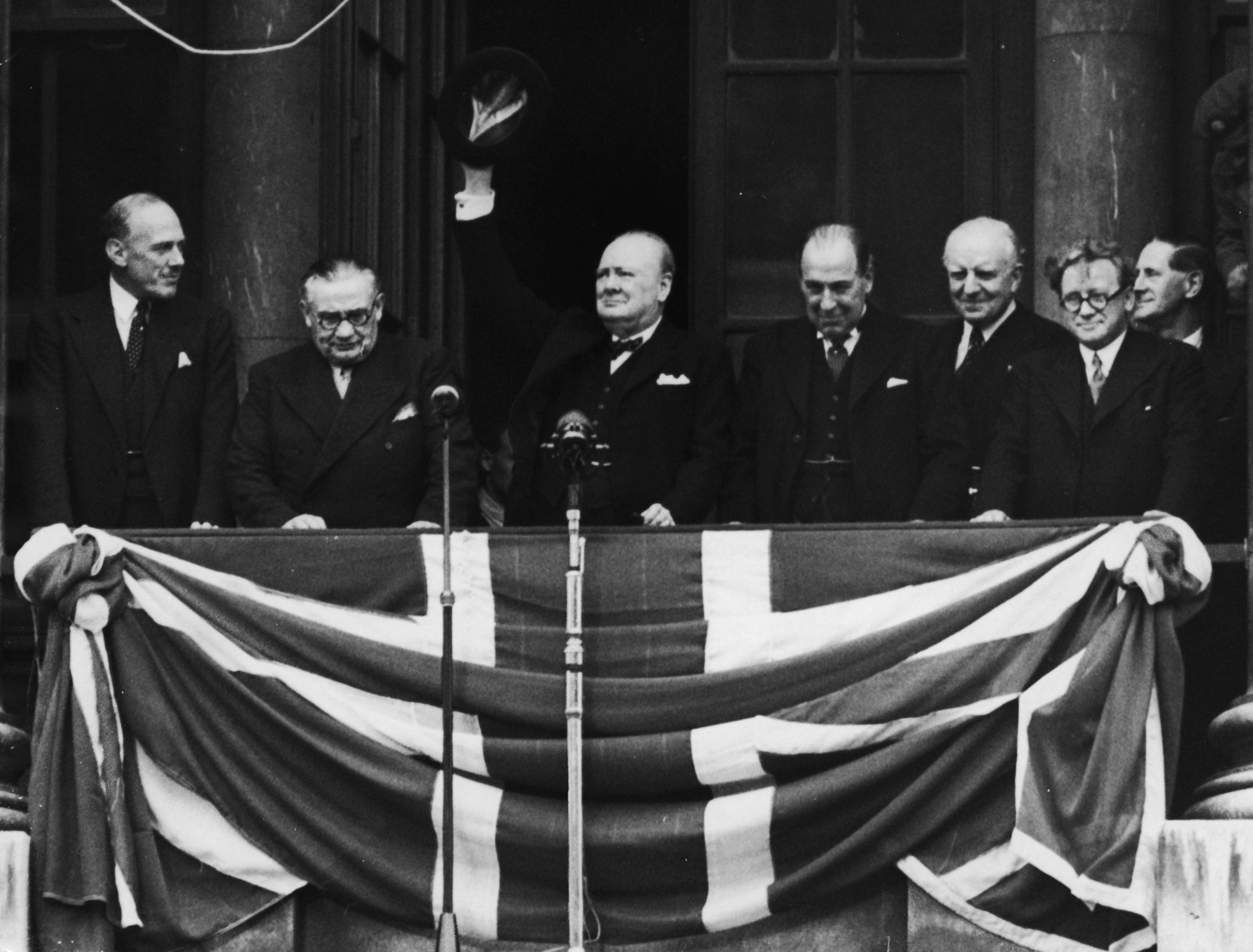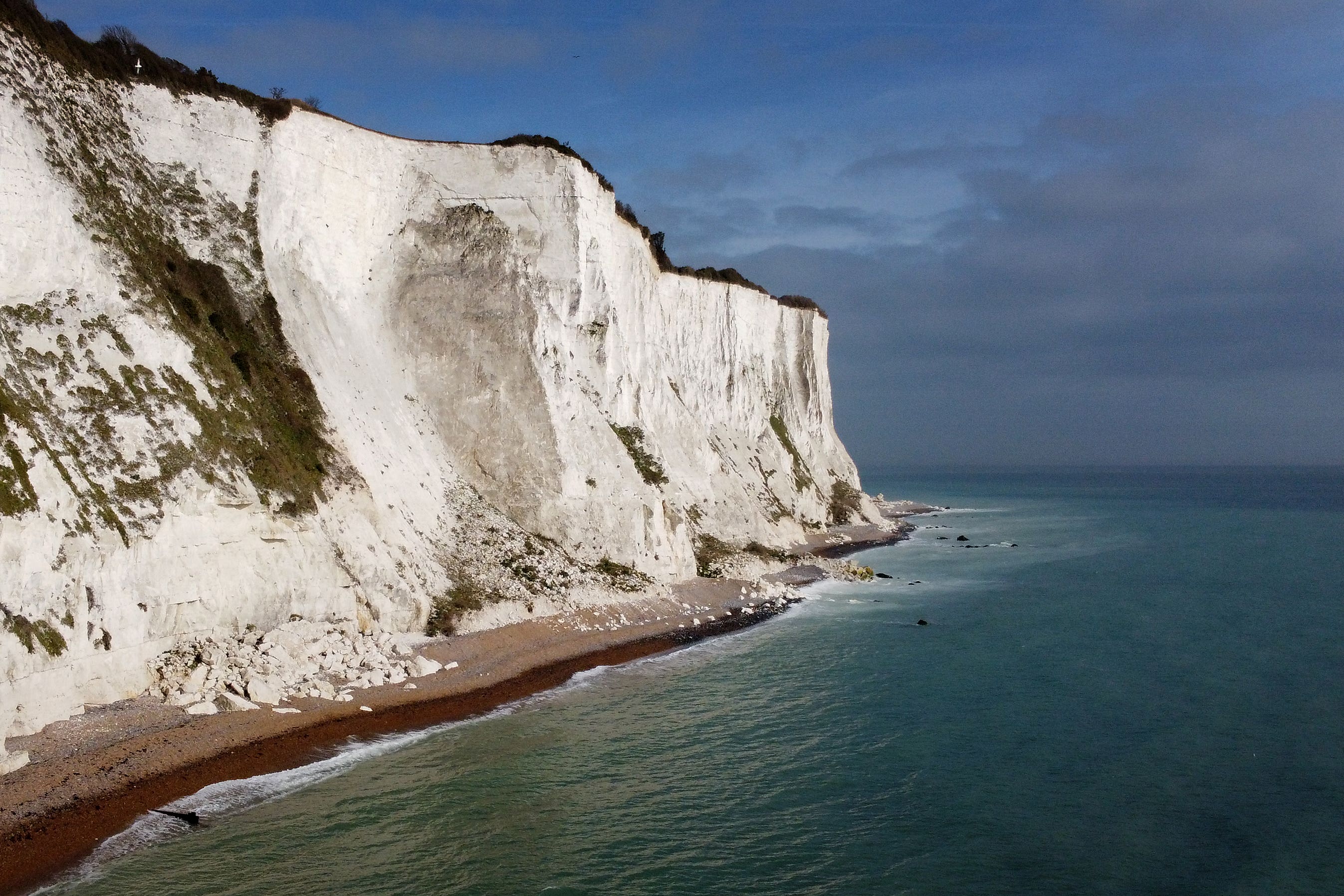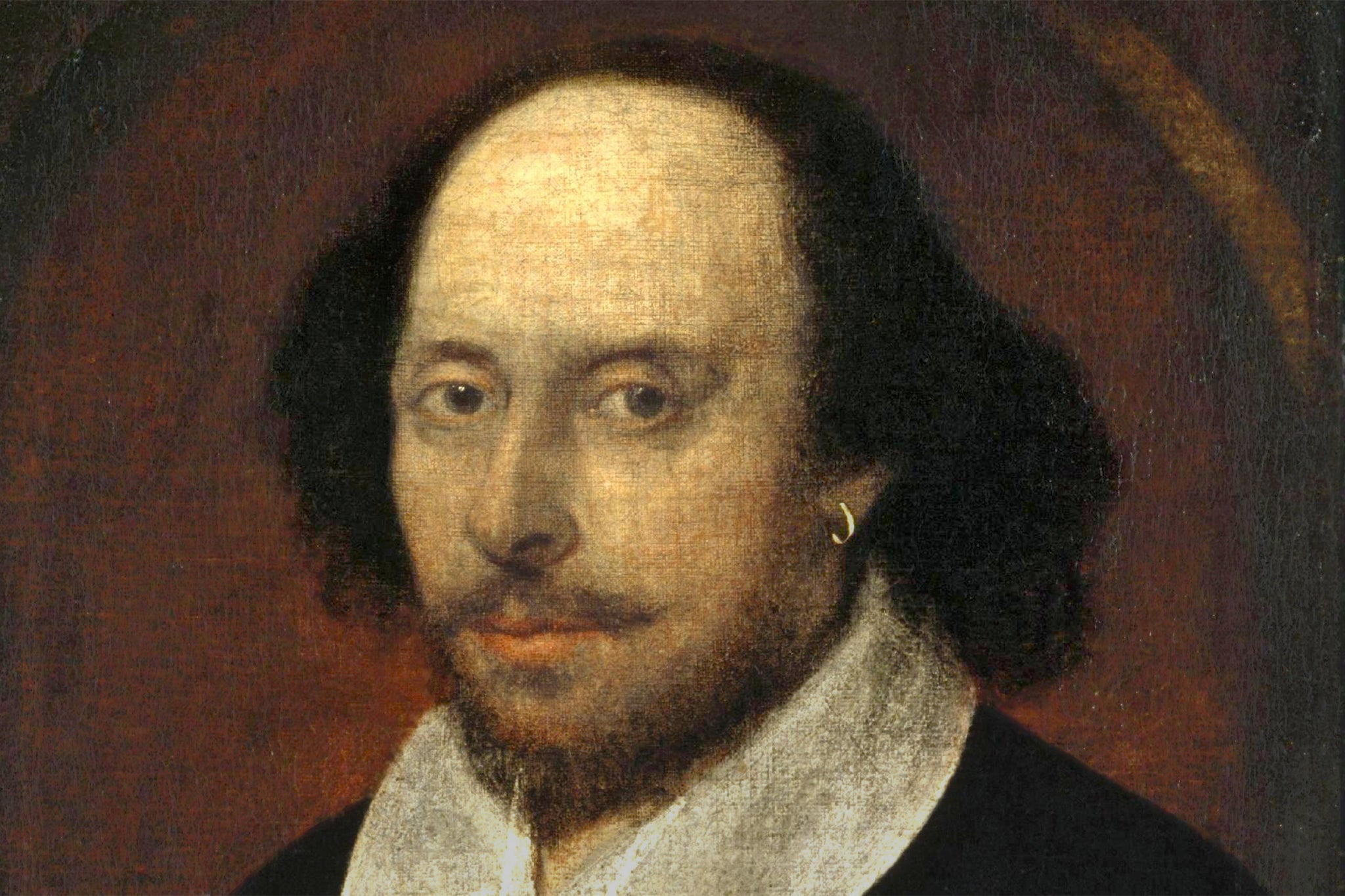Our national identity is in crisis – so what does it mean to be British in 2025?
In an age of divisive nationalism, the question of what it means to hail from Britain has become difficult to parse. A new book finds that the answer lies somewhere in language, whether in the form of self-deprecating slogans or the words of our most beloved playwright, writes Robert McCrum


When it comes to national and personal identity, Paul Gauguin attached the only three questions that matter to his enigmatic masterpiece, a haunting landscape of Tahitian women led by an allegorical depiction of Eve: Where Do We Come From? What Are We? Where Are We Going?
Who we are, in the historical present, is an ageless question that demands political savvy and a rhetorical imagination. Occasionally, the cries of pain from those at the top who find themselves on the wrong side of this argument pierce the background hiss of everyday events. Watch ex-president Joe Biden on BBC TV denounce Donald Trump’s brutal Oval Office mugging of Volodymyr Zelensky (“What kind of president even talks like that? That’s not who we are”) and you see the anguish of a man coming to terms with his residence in the dustbin of history.
This search for new and better narratives in a changing world has become a top theme for disrupted times. The election of Pope Leo XIV is a reminder that it’s not just the US (and the UK) that are absorbed in that all-important quest for identity. Some commentators, indeed, have framed the election of Leo as a reassertion of classic American pluralism by the Roman Catholic hierarchy, a priestly riposte to Trump’s ugly “America First” viciousness.
In Britain, that search for a role has bedevilled our politics since Suez, with Brexit just the worst expression of who we aspire to be, a false step that’s steered our politics into its current impasse: a clueless Labour government and a pointless Conservative opposition, with the jackals of Reform snapping at their heels in an opportunistic, unhinged parody of little-England protest.
National identity is fraught with rabbit holes. While you might hesitate trying to unscramble “What does it mean to be British?”, many Brits still declare allegiance to any number of totems – national, sporting, ethnic, civic or sexual – braided into a weird tapestry of Britishness. To take one small example, our literature includes the work of Conrad (Polish); Swift, Wilde, Joyce and Beckett (Irish); Naipaul and Walcott (West Indian), Hume, Burns, and Stevenson, (Scots); and Henry James and TS Eliot (American).
“British” remains a puzzle at the core of who we are. In 2007, when Gordon Brown attempted to define the nature of this conundrum, he was widely mocked for the rhetorical equivalent of trying to pin the tail on the donkey. One newspaper (The Times) sponsored a campaign for a “British” motto, something to match “Liberté, Égalité, Fraternité”. Something a bit less embarrassing than “Cool Britannia”. Readers’ suggestions included, for example: “Dipso. Fatso. Bingo. Asbo. Tesco”. Closely followed by: “No Motto Please, We’re British”.

In 2025, our national identity remains contentious. What’s not said is the important bit. With some Britons, a raised eyebrow can be as meaningful as a national mission statement – except, of course, in a crisis. It’s crises that remind us who we really are. As the Luftwaffe massed over London, George Orwell’s brilliant essay The Lion and the Unicorn explored the complexity of a society at war. “We call our islands by no less than six different names,” he wrote. “England, Britain, Great Britain, the British Isles, the United Kingdom and, in very exalted moments, Albion.” Finally, even Orwell was forced to exclaim: “How can one make a pattern out of this muddle?”
Perhaps the last time “British” made sense was in 1940. Winston Churchill wrapped himself in the union flag to unite and mobilise the country. “We shall fight on the beaches” became an atavistic cry of defiance. The latest celebration of VE Day throughout the shires tells you all you need to know about its place in the national psyche. The sea and the beach embody the paradoxes of island life.
Churchill’s rhetorical genius knew what chord he was sounding. It’s the sea that defines, aggravates and inspires us; the sea that‘s always separated us from our enemies and sponsored an urgent traffic with the wider world, translating vigilant curiosity into trade and exploration.
We have salt in our blood. Today, the tides and climate of the sea continue to shape British identity. Some 30 per cent of Britons live within six miles of the coast, and one millennial YouGov poll placed “being an island” sixth in the top 10 of “Best things about Britain”. Best thing of all – at 65 per cent? The countryside. Compared to, say, the French, we are a proud but fundamentally conservative people. And it’s the sea that makes us British. The sea is not just the best defence known to man, and a great natural highway: people who live by water are different. We islanders have different physical, and psychic, horizons. Brexit began on our beaches.
The sea also sponsored the British concept of privacy. Islanders are insular, and insular is synonymous with “defiant, separate, alone, divergent, and self-sufficient”. As Orwell noted, British respect for individual privacy is so deeply ingrained, it is almost a national characteristic. The flip side of privacy is self-assertion, just as shy can be the antonym of arrogant. To be a native of these islands was – and still is – to be conscious of a unique and distinctive character.

Down south, for instance, ours was the first society in Europe to promote its identity, composing a vernacular account of its history, the Anglo-Saxon Chronicle. As islanders, our ancestors were imprinted with the DNA of self-expression: “Words, words, words.”
For hundreds of years, the name of this misty archipelago was in flux. There were rival kingdoms, in Mercia, Wessex, East Anglia, and further north in the kingdom of Cumbria. The mythic “Britain” of King Arthur or King Lear was defined by its cliffs and seas. Blessed – and cursed – by its position. As well as being highly interactive, our ancestors suffered constant invasion.
The South and Midlands knew what it meant to be subdued by the Romans and successive waves of Anglo-Saxons. Then converted to Christianity by St Augustine. Next, almost annihilated by the Danes. Finally, subjugated by the Normans. The upshot was a tradition of fierce domestic individuality. Today, the legacy of that “unique and distinctive character” is the world’s understanding of “what it means to be British”. This remains paradoxical at every level.
The juxtaposition of sea and land opposes the awesome majesty of the ocean with the petty, parochial and mundane shabbiness of the domestic hearth. As Tolkien implies, at one level, we’re all hobbits. Despite the veneration surrounding Shakespeare’s “sceptr’d isle”, one timeless British quality is a grotty, subtopian mess.
Nevertheless, the English continue to repeat this story in versions more and more detached from reality, celebrating the soft power of English and Englishness as our gift to the world. In this vein, Amorous or Loving: The Highly Peculiar Tale of English and the English by Rupert Gavin explores the vicissitudes of English language and culture, from the mythic origins of “The Land of Tattooed People” to the London Olympics of 2012. Inevitably, there is another reading, one that has little of the cultural superiority implicit in what we might call “the BBC version”.
My England and its English are indeed “peculiar”, but chiefly as the upshot of chance, cock-up, crisis, and catastrophe. Its people survived successive invasions by the skin of their teeth, acquired a fierce and precocious sense of provincial identity, and discovered in words and argument a useful way to regulate the violence of common life with common law.

A thousand years ago, they were comprehensively humiliated by a French army that imposed – top-down – an authoritarian regime famous for its cruelty. But the defeated Anglo-Saxons were a people who had only just acquired – and would never forget – a taste for free thought and free speech.
For more than a hundred years (and even into the 14th century), this language and culture went underground, surviving on the lips and in the minds of common folk while finding self-expression in ballads, riddles, folk tales, and out-of-doors drama. Their governors, meanwhile, spoke French, and ruled in Latin.
Shakespeare dramatised the temper of the English commoner in Henry VI: Part II with “let’s kill all the lawyers”. Indeed, Will Shakespeare from Stratford is the product of a highly informal, provincial society, the son of a Midlands glover. When he came to London, he joined a community of players barely distinguishable from vagabonds.
The pioneers of the English culture we celebrate today were, like the first English writers and artists, outsiders within this society. The idea that their poetry and plays should be a “gift” to global culture would have seemed absurd, even unthinkable. Shakespeare himself was first and foremost an entertainer, never fully recognised as an “author” until the publication of the First Folio (1623), seven years after his death. Approximately a generation later, the playwright’s London audience watched the execution of Charles I: a profound expression of the English belief in the sovereign identity of the free citizen.
‘Amorous or Loving: The Highly Peculiar Tale of English and the English’ by Rupert Gavin is published by Unicorn, £25



Join our commenting forum
Join thought-provoking conversations, follow other Independent readers and see their replies
Comments